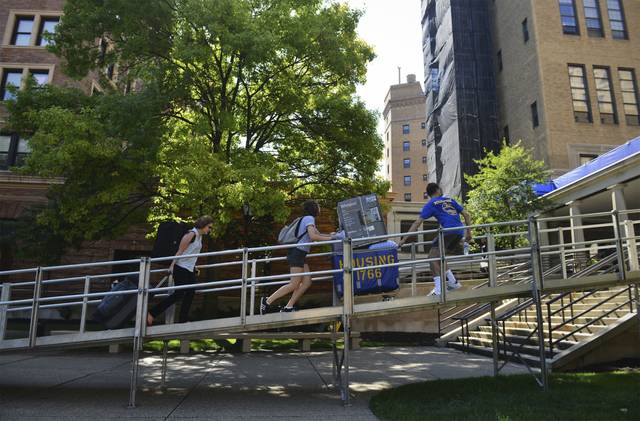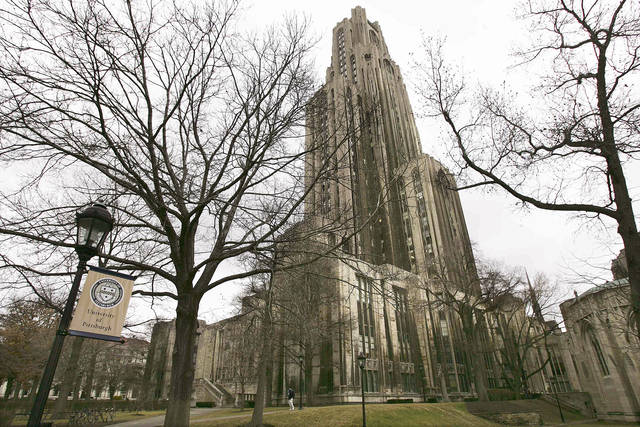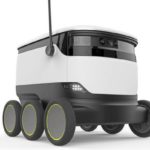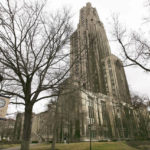The sidewalks in Oakland may soon be getting even more crowded.
The University of Pittsburgh and Starship Technologies, a robotics company that makes 50-pound robots resembling coolers on wheels, plan to launch a delivery service this year.
“We are working with the city and our Oakland neighbors toward a launch later this fall,” Pitt spokesman Kevin Zwick said in an email.
A fleet of about 25 robots will be programmed to travel on Pitt’s campus carrying groceries, take-out meals and packages.
The Oakland Planning and Development Corporation discussed bringing automated delivery robots to the neighborhood during an August meeting. David Catania, Starship’s head of government affairs, reported then that the robots would operate in a similar manner to other universities.
OPDC has not taken a position on the proposal.
Starship, which was founded in Estonia and San Francisco, has already tested out its meal carriers in Estonia, London, and Washington, D.C.
In 2016, the company had test runs at the University of Arkansas — its first test on a college campus. Starship brought 25 delivery robots to George Mason University in January and brought robots to Northern Arizona University in March.
The latest ventures involved a partnership between Starship and Sodexo Inc., a food management company that also serves the University of Pittsburgh. Starship mentioned Pitt in a news release detailing their plans to expand to more colleges after securing $40 million in funding earlier this year.
The plan is to have the robots operate on campus first, while negotiating with Pittsburgh on how to expand. Catania said Forbes Street Market could be one of the early on-campus vendors. He said the robots would not deliver alcohol.
The service would cost a flat fee of $1.99 per delivery, with customers meeting the robot at a designated location and obtaining their items by accessing a mobile app on their phones upon delivery.
Starship said their robots operate autonomously up to 99% of the time. The other 1% accounts for technical difficulties and other interference. But just in case, they may be controlled by a remote human operator at any time.
Delivery robots are on the rise. According to a study by Markets and Markets, the delivery robots market is expected to grow from nearly $12 million in 2018 to $34 million by 2024.
Starship launched in 2014 and has been one of the robotics companies testing these types of robots the longest.
Pitt may have to overcome obstacles that other cities have faced concerning where and how sidewalk robots operate. In 2017, San Francisco municipal legislators attempted to ban delivery robots shortly after they first appeared. Instead of an outright ban, the legislators succeeded in restricting access and operation of delivery robots, effectively banning them from much of the city barring a specific permit. One restriction included capping the number of robots in the city to a total of nine. Just this year, Postmates attained a permit to test its new delivery robots in a limited area of the city.













